The Rise of AI in Travel Planning for 2025
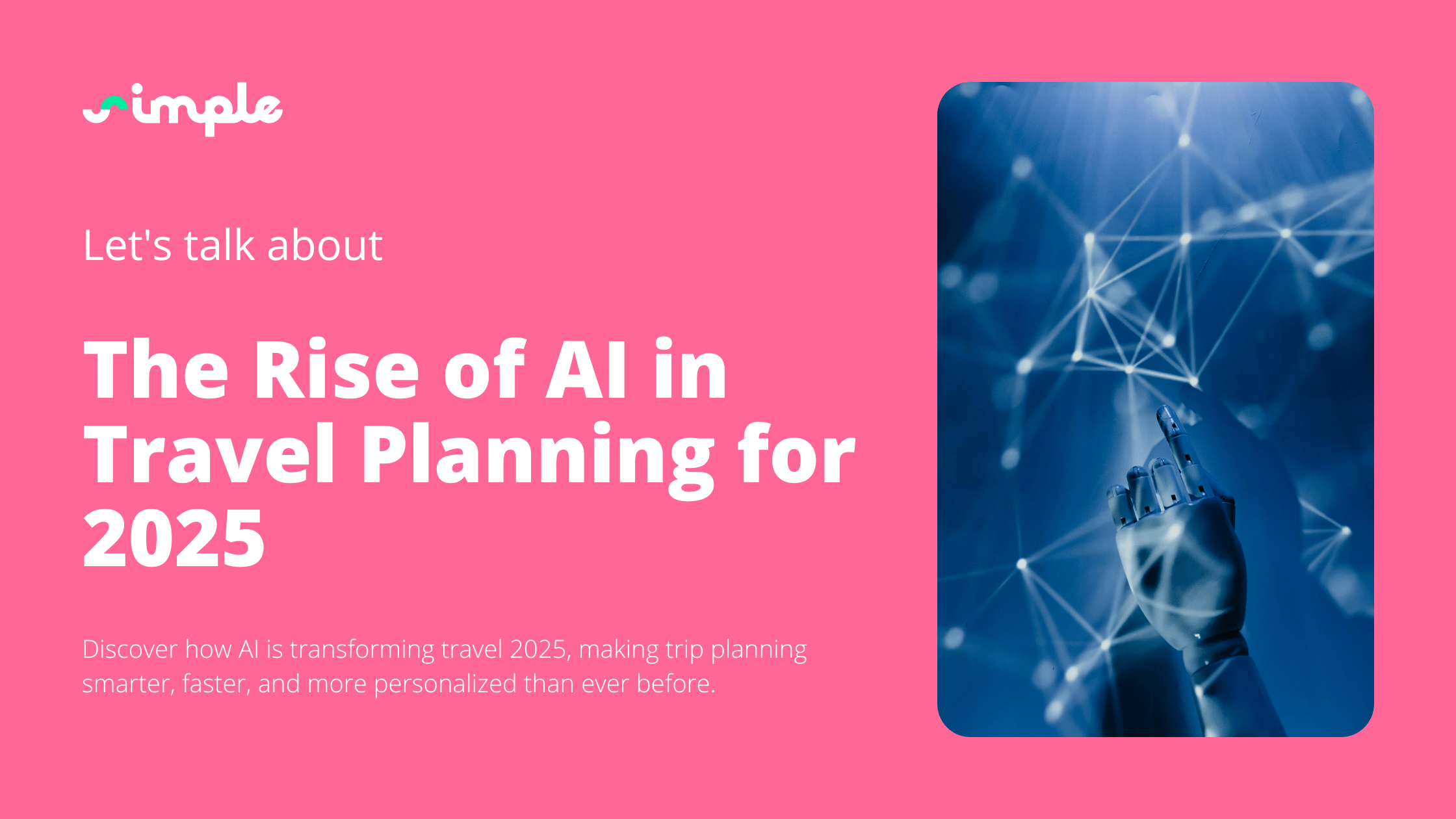
The travel industry is undergoing a profound transformation as technology continues to reshape how people plan, book, and experience their journeys. With the rapid integration of advanced tools and digital platforms, travelers now have access to more personalized, efficient, and innovative solutions than ever before. Among these technological advancements, artificial intelligence (AI) stands out as a driving force that is redefining the future of travel. From smart travel solutions that anticipate individual preferences to travel booking innovations that streamline complex itineraries, AI is becoming an indispensable part of the travel ecosystem.
Current trends in travel 2025 highlight a shift toward more data-driven and automated processes, where AI-powered systems analyze vast amounts of information to offer tailored recommendations and real-time updates. This integration of technology not only enhances convenience but also improves travel safety guidelines by providing timely alerts and adaptive responses to changing conditions. As travelers increasingly seek seamless experiences, the role of AI in vacation planning 2025 is expanding beyond simple automation to include predictive analytics, natural language processing, and machine learning capabilities that understand and respond to unique traveler needs.
Artificial intelligence is no longer confined to niche applications; it is becoming a core component of everyday decision-making across industries, and travel is no exception. The growing influence of AI in travel planning is evident in the rise of virtual assistants, chatbots, and recommendation engines that help users navigate complex choices with ease. These technologies enable travelers to explore sustainable travel 2025 options, discover emerging travel destinations 2025, and optimize their travel budgets through intelligent suggestions. By leveraging AI, the travel industry is poised to deliver more personalized and eco-friendly travel options that align with evolving consumer values.
As the landscape of international travel updates continues to evolve, AI-driven tools are setting the stage for a new era of travel experiences 2025. The fusion of human insight and machine intelligence promises to revolutionize how trips are designed, booked, and enjoyed. For those interested in staying ahead of these developments, exploring resources related to travel 2025 offers valuable insights into the future of travel planning and the technologies shaping it.
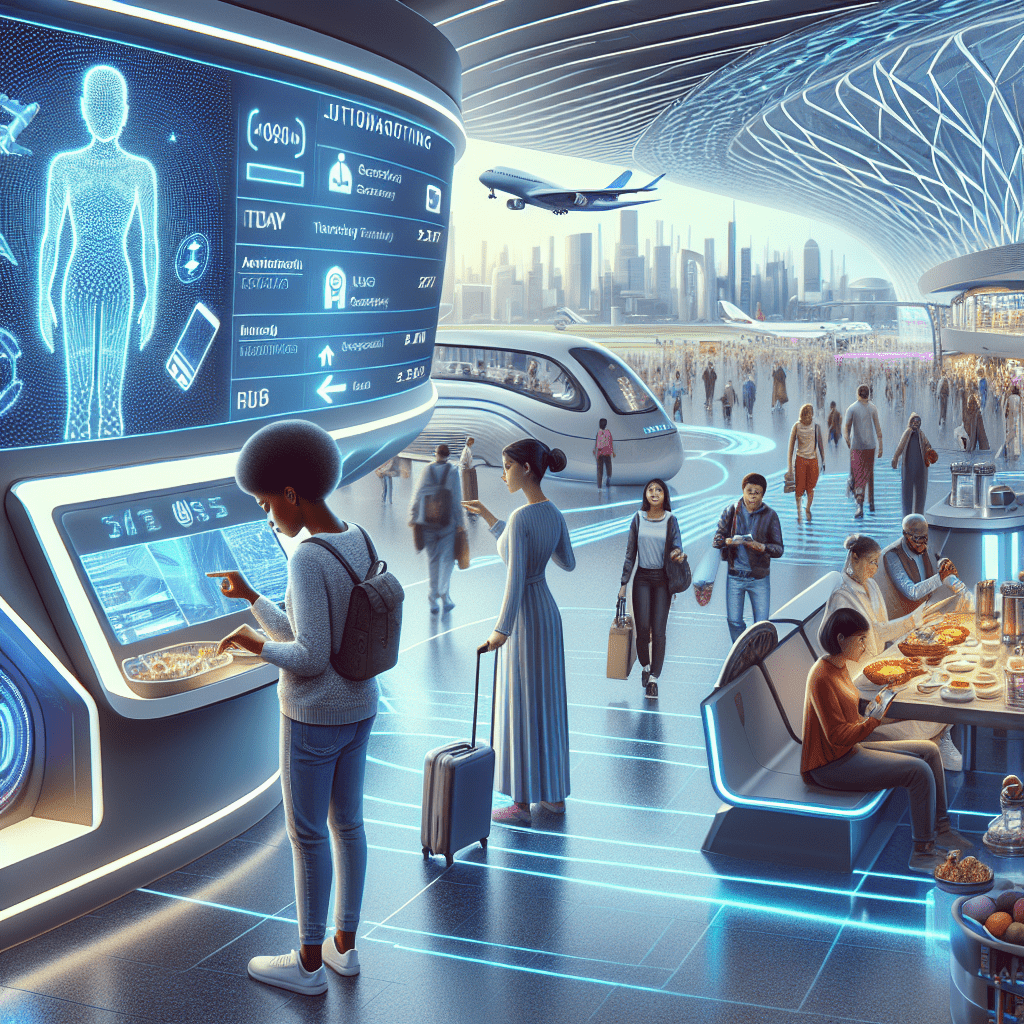
Enhanced Personalization Through AI
Data-driven traveler profiling
One of the most significant advancements shaping the travel industry 2025 is the ability to create highly detailed traveler profiles through data-driven analysis. By collecting and analyzing user preferences and behavior, travel platforms can now offer recommendations that are finely tuned to individual tastes and habits. This process begins with gathering data from various sources such as past bookings, search histories, social media activity, and even real-time interactions with travel apps. The result is a comprehensive understanding of what each traveler values most—whether it’s adventure travel 2025, luxury accommodations, or eco-friendly travel options.
Tailoring recommendations based on past travel history allows for a more intuitive and satisfying planning experience. For example, if a traveler frequently chooses beach destinations or prefers boutique hotels, the system will prioritize similar options in future suggestions. This level of personalization extends beyond simple preferences to include factors like preferred travel pace, budget constraints, and even dietary restrictions. The ability to adapt in real-time to changing traveler needs is another key feature. If a traveler suddenly shows interest in sustainable travel 2025 or seeks last-minute travel safety guidelines due to emerging global events, the system can quickly adjust its recommendations to reflect these priorities.
Such dynamic profiling not only enhances user satisfaction but also increases efficiency by reducing the time spent sifting through irrelevant options. This data-driven approach is a cornerstone of future travel trends, enabling travelers to receive highly relevant, personalized content that aligns with their unique travel goals and circumstances.
AI-powered itinerary creation
Automated generation of customized travel plans is revolutionizing vacation planning 2025 by simplifying what was once a complex and time-consuming process. Instead of manually piecing together flights, accommodations, activities, and transportation, travelers can now rely on intelligent systems that create comprehensive itineraries tailored to their preferences and constraints. These systems integrate diverse elements such as sightseeing tours, dining experiences, local events, and even downtime, ensuring a balanced and enjoyable trip.
One of the key advantages of this approach is the optimization for budget and time constraints. Travel booking innovations allow the itinerary to be adjusted dynamically, offering alternatives that fit within a traveler’s financial limits or schedule. For instance, if a preferred hotel is unavailable or exceeds the budget, the system can suggest comparable options without compromising the overall experience. Similarly, transportation choices are optimized to minimize travel time and maximize convenience, whether that involves selecting direct flights, efficient public transit, or car rentals.
Moreover, these AI-powered itineraries are designed to be flexible and adaptive. As travelers receive international travel updates or encounter unexpected changes, their plans can be modified in real-time to accommodate new circumstances. This level of customization ensures that each trip is not only well-organized but also resilient to disruptions, enhancing the overall travel experience 2025.
Language and cultural assistance
Effective communication and cultural understanding are essential components of successful travel, especially as more people explore diverse travel destinations 2025. Language barriers and unfamiliar customs can create challenges that detract from the enjoyment and safety of a trip. To address this, advanced translation services and cultural assistance tools are increasingly embedded within travel planning platforms.
AI translation services enable seamless communication by providing instant translations of spoken or written language, allowing travelers to navigate foreign environments with confidence. Whether ordering food, asking for directions, or engaging with locals, these tools reduce misunderstandings and foster more meaningful interactions. Beyond language, cultural tips and etiquette suggestions are integrated into planning tools to prepare travelers for local customs and social norms. This guidance helps avoid unintentional offenses and enriches the travel experience by encouraging respectful and informed behavior.
By combining language support with cultural insights, travelers are empowered to explore new regions more comfortably and authentically. This not only enhances personal enjoyment but also promotes sustainable travel 2025 by encouraging responsible and culturally sensitive tourism practices. As a result, language and cultural assistance are becoming indispensable features in smart travel solutions, contributing to safer, more enjoyable, and more respectful travel experiences worldwide.
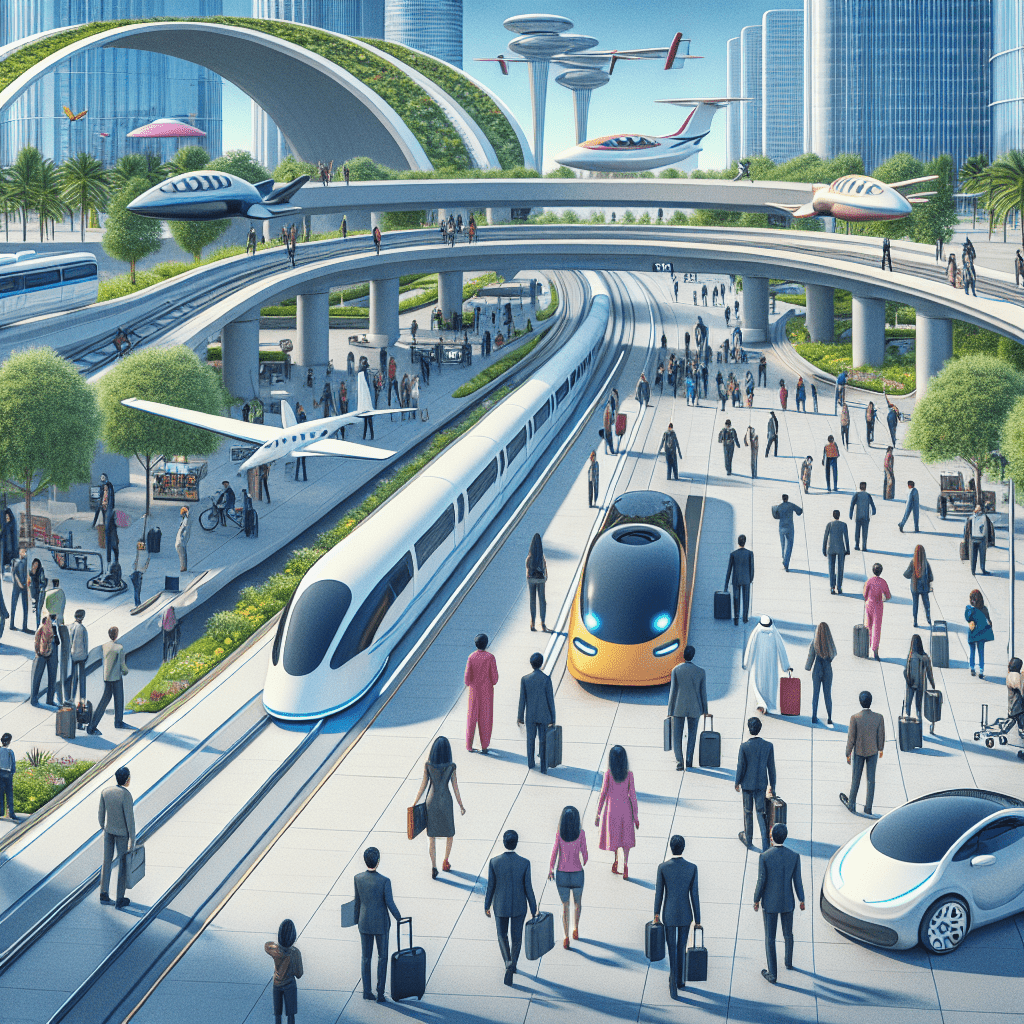
Efficiency and Accessibility Improvements
Streamlining booking and management processes
The travel industry 2025 is witnessing remarkable efficiency gains through the streamlining of booking and management processes. One of the most notable developments is the widespread adoption of chatbots and virtual assistants that simplify reservations and customer interactions. These tools provide travelers with instant responses to inquiries, guide them through complex booking steps, and offer personalized suggestions based on individual preferences. This level of automation reduces the need for lengthy phone calls or email exchanges, making the entire process faster and more user-friendly.
Automated updates and alerts have become essential components of modern travel planning. Travelers receive real-time notifications about flight delays, gate changes, weather disruptions, and other critical information that can impact their journey. This proactive communication helps travelers adjust their plans promptly, minimizing stress and inconvenience. The reduction of human error is another significant benefit, as automated systems handle repetitive tasks with precision and consistency, ensuring that bookings, cancellations, and modifications are processed accurately and swiftly.
These improvements contribute to a smoother travel experience by eliminating many of the traditional pain points associated with vacation planning 2025. The integration of smart travel solutions into booking platforms not only enhances convenience but also supports the growing demand for seamless, end-to-end travel management. As a result, travelers can focus more on enjoying their trips and less on administrative hassles.
Enhanced accessibility for all travelers
Accessibility has become a central focus in the evolution of travel technology advancements, ensuring that travel experiences 2025 are inclusive and available to everyone. Assistance for differently-abled individuals has improved significantly through specialized tools designed to address unique mobility, sensory, and communication needs. These tools provide tailored support, such as voice-activated controls, screen readers, and navigation aids, enabling travelers with disabilities to plan and execute trips with greater independence and confidence.
Another critical area of improvement is the simplification of complex visa and travel documentation processes. Many travelers face challenges navigating the often confusing and time-consuming requirements for international travel updates. Streamlined digital platforms now offer step-by-step guidance, document verification, and automated reminders, reducing the risk of errors or missed deadlines. This accessibility enhancement opens up new opportunities for a broader range of travelers to explore global destinations without unnecessary barriers.
Greater access to travel options regardless of expertise or language proficiency is also transforming the travel landscape. Multilingual interfaces, intuitive design, and comprehensive support services ensure that even novice travelers can confidently plan their trips. These advancements align with future travel trends that emphasize inclusivity and user empowerment, making travel more approachable and enjoyable for diverse populations worldwide.
Cost optimization and dynamic pricing insights
Cost optimization remains a top priority for many travelers, and the latest travel booking innovations provide powerful tools to maximize value without sacrificing quality. Predictive analytics play a crucial role in identifying the best times to book flights and hotels, analyzing historical data and market trends to forecast price fluctuations. This insight allows travelers to make informed decisions, securing the most favorable rates and avoiding last-minute price surges.
Personalized budget recommendations based on spending patterns further enhance vacation planning 2025 by tailoring suggestions to individual financial goals. By examining previous travel expenditures and preferences, these systems can recommend destinations, accommodations, and activities that align with a traveler’s budget while still delivering memorable experiences. This approach supports sustainable travel 2025 by encouraging mindful spending and reducing unnecessary expenses.
Dynamic pricing insights also enable travelers to take advantage of special offers, discounts, and package deals that might otherwise go unnoticed. By continuously monitoring market conditions and promotional campaigns, travelers receive timely alerts about opportunities to save money. This level of financial intelligence empowers travelers to plan more ambitious trips, including adventure travel 2025 or extended stays, without compromising their financial stability.
Overall, the combination of streamlined booking processes, enhanced accessibility, and cost optimization is reshaping how travelers approach their journeys. These advancements not only improve convenience and inclusivity but also contribute to smarter, more efficient travel planning that meets the evolving demands of the modern traveler.
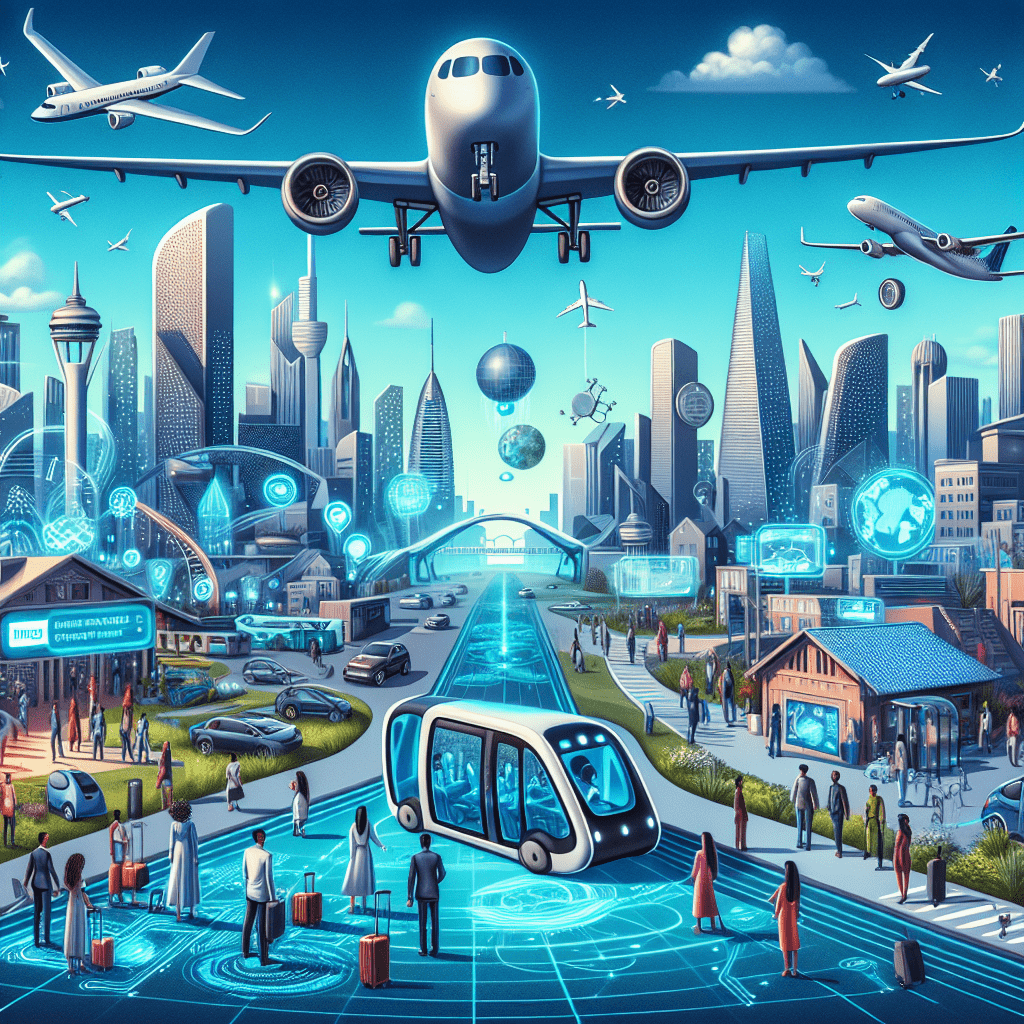
Security, Privacy, and Ethical Considerations
Protecting traveler data in AI-driven platforms
As the travel industry 2025 continues to embrace travel technology advancements, the protection of traveler data has become a paramount concern. With vast amounts of personal information being collected to enhance travel experiences 2025, robust cybersecurity measures are essential to safeguard sensitive data from breaches and unauthorized access. This includes implementing advanced encryption protocols, secure authentication methods, and continuous monitoring of systems to detect and respond to potential threats promptly.
Transparency in data usage and consent is equally important in building trust between travelers and service providers. Clear communication about what data is collected, how it is used, and who has access ensures that travelers feel confident in sharing their information. Providing easy-to-understand privacy policies and options to control data sharing empowers travelers to make informed decisions about their personal information. This openness not only complies with regulatory requirements but also fosters a culture of respect and accountability within the travel industry.
Building traveler trust through ethical practices is a critical component of sustainable travel 2025. Ethical considerations extend beyond data protection to include responsible handling of information and respect for user privacy. Travel platforms that prioritize ethical standards demonstrate a commitment to safeguarding traveler interests, which in turn enhances brand reputation and customer loyalty. As travelers become more aware of privacy issues, companies that uphold these principles will be better positioned to thrive in the evolving travel landscape.
Addressing potential biases in AI algorithms
Ensuring inclusivity in travel recommendations is a growing priority as the travel industry 2025 seeks to serve a diverse global audience. Algorithms that power travel booking innovations and smart travel solutions must be carefully designed to avoid biases that could exclude or disadvantage certain traveler demographics. This requires a deliberate effort to incorporate diverse data sets and perspectives during development, ensuring that recommendations are fair and representative of all users.
Continuous monitoring and improvement of algorithmic fairness are necessary to maintain equitable outcomes. Regular audits and updates help identify and correct any unintended biases that may emerge over time. This proactive approach supports the delivery of personalized travel experiences 2025 that respect cultural differences, accessibility needs, and individual preferences without discrimination.
The impact of bias mitigation extends to a wide range of travelers, including those from underrepresented communities, differently-abled individuals, and those with unique travel requirements. By addressing these challenges, the travel industry can promote more inclusive vacation planning 2025 and contribute to a more equitable global travel environment. This commitment to fairness aligns with broader future travel trends emphasizing diversity and social responsibility.
Balancing automation with human touch
While automation has brought significant efficiency to the travel industry 2025, maintaining a balance between technological solutions and personalized human service remains essential. Travelers often value the expertise and empathy that travel professionals provide, especially in complex or unique scenarios that require nuanced judgment. Combining smart travel solutions with human insight ensures that travelers receive both the speed of automation and the thoughtful guidance of experienced experts.
Personalized service alongside automated efficiency enhances the overall quality of travel experiences 2025. For example, while automated systems can handle routine bookings and provide instant updates, human agents are better equipped to manage special requests, resolve disputes, and offer tailored advice based on deep knowledge of travel destinations 2025. This hybrid approach caters to a wide range of traveler needs, from straightforward trips to intricate itineraries involving multiple countries and activities.
The role of travel experts remains vital in navigating post-pandemic travel complexities, including evolving travel safety guidelines and international travel updates. Their ability to interpret regulations, anticipate challenges, and provide reassurance complements the capabilities of automated platforms. By integrating human expertise with technological advancements, the travel industry can deliver a more responsive, trustworthy, and satisfying experience for all travelers.
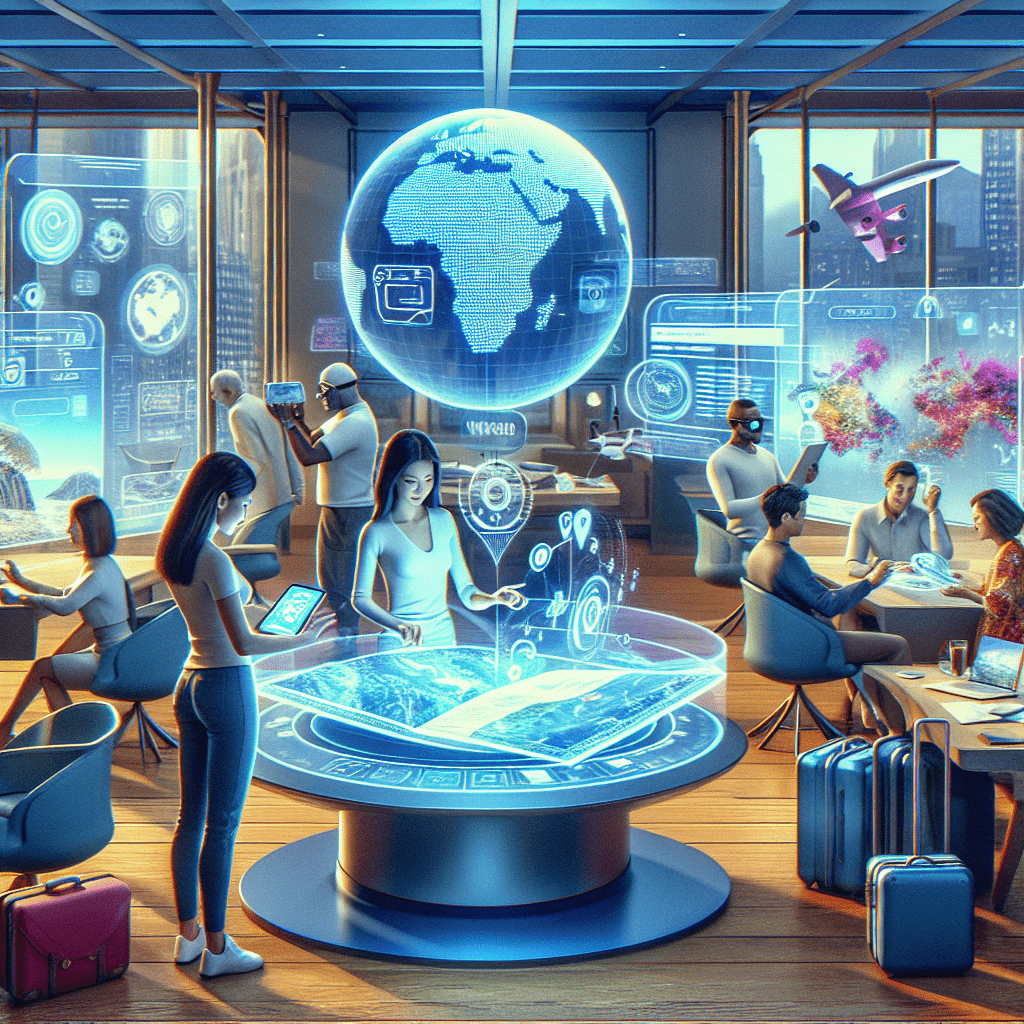
Shaping the Future of Travel Planning in 2025
The evolution of travel planning in 2025 is marked by a shift toward more intuitive, inclusive, and efficient processes that cater to the diverse needs of modern travelers. Technological advancements have become a catalyst for this transformation, enabling personalized experiences that adapt seamlessly to individual preferences and circumstances. From enhanced itinerary creation to streamlined booking and management, these innovations are redefining how people approach vacation planning 2025. The integration of smart travel solutions allows for greater accessibility, ensuring that travelers of all abilities and backgrounds can explore new destinations with confidence and ease. This progress aligns with broader future travel trends that emphasize sustainability, convenience, and meaningful engagement with travel experiences 2025.
Moreover, the travel industry 2025 is increasingly focused on delivering eco-friendly travel options and sustainable travel 2025 practices that minimize environmental impact while maximizing enjoyment. By leveraging data-driven insights and dynamic pricing strategies, travelers can optimize their budgets without compromising quality or ethical considerations. The result is a more balanced approach to travel that respects both individual desires and global responsibilities. As the landscape of international travel updates continues to evolve, these advancements provide a foundation for safer, smarter, and more fulfilling journeys worldwide.
Responsible adoption of these technologies is essential to fully realize their potential and build lasting trust with travelers. Protecting traveler data through robust security measures and transparent practices fosters confidence in digital platforms and services. Equally important is addressing inclusivity by ensuring that travel recommendations and solutions are fair and representative of diverse populations. This commitment to ethical standards not only enhances traveler experiences but also strengthens the reputation and sustainability of the travel industry as a whole.
Balancing automation with personalized human service remains a key factor in maintaining high-quality travel experiences. While technology can handle routine tasks efficiently, the expertise and empathy of travel professionals continue to play a vital role in managing complex situations and providing tailored support. This harmonious integration of innovation and human insight ensures that travelers receive comprehensive assistance throughout their journeys.
In summary, the advancements shaping travel planning in 2025 offer exciting opportunities for more intuitive, inclusive, and efficient travel experiences. By embracing these changes responsibly, the travel industry can enhance satisfaction, foster trust, and contribute to a more sustainable and accessible future for all travelers.